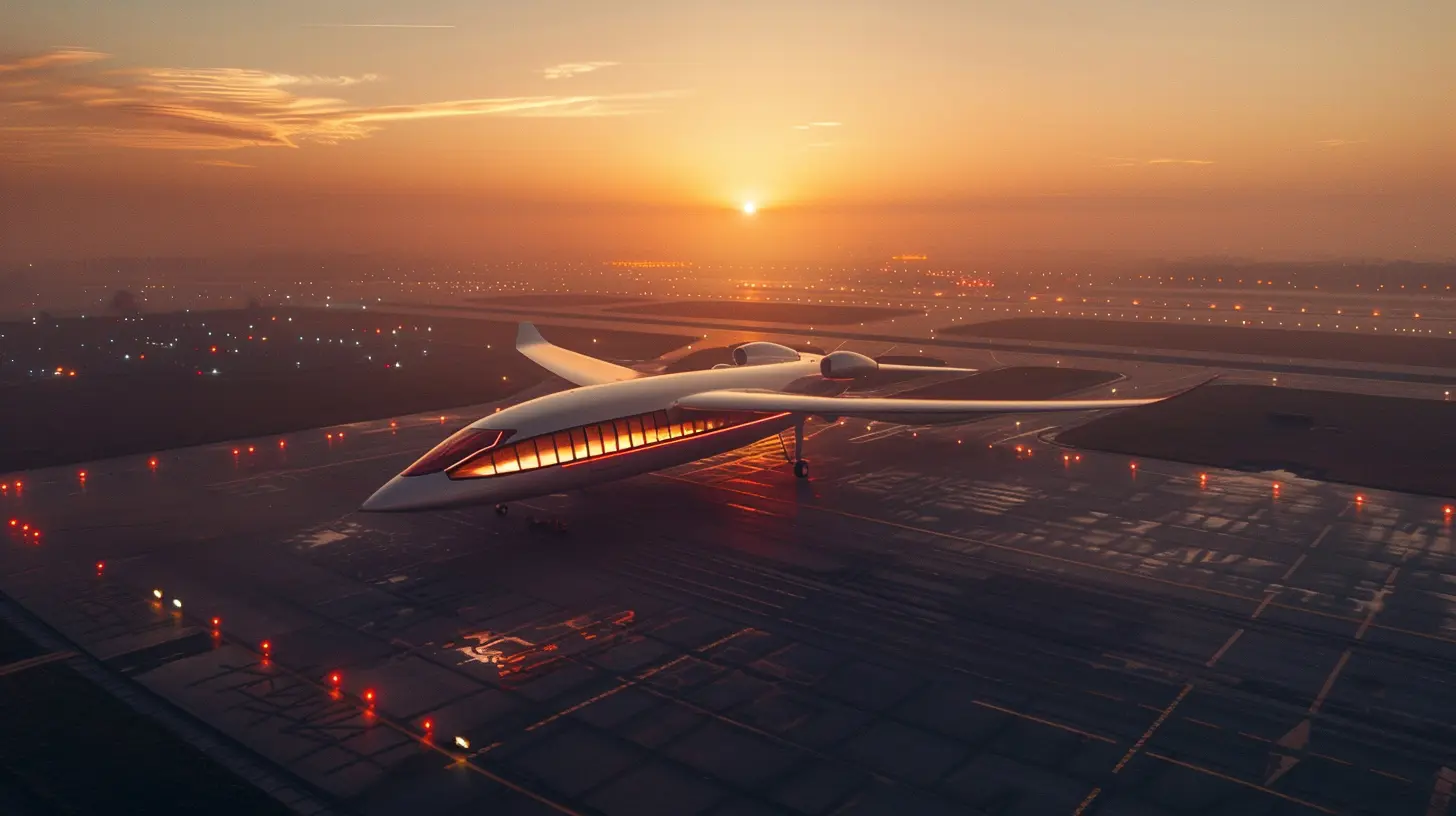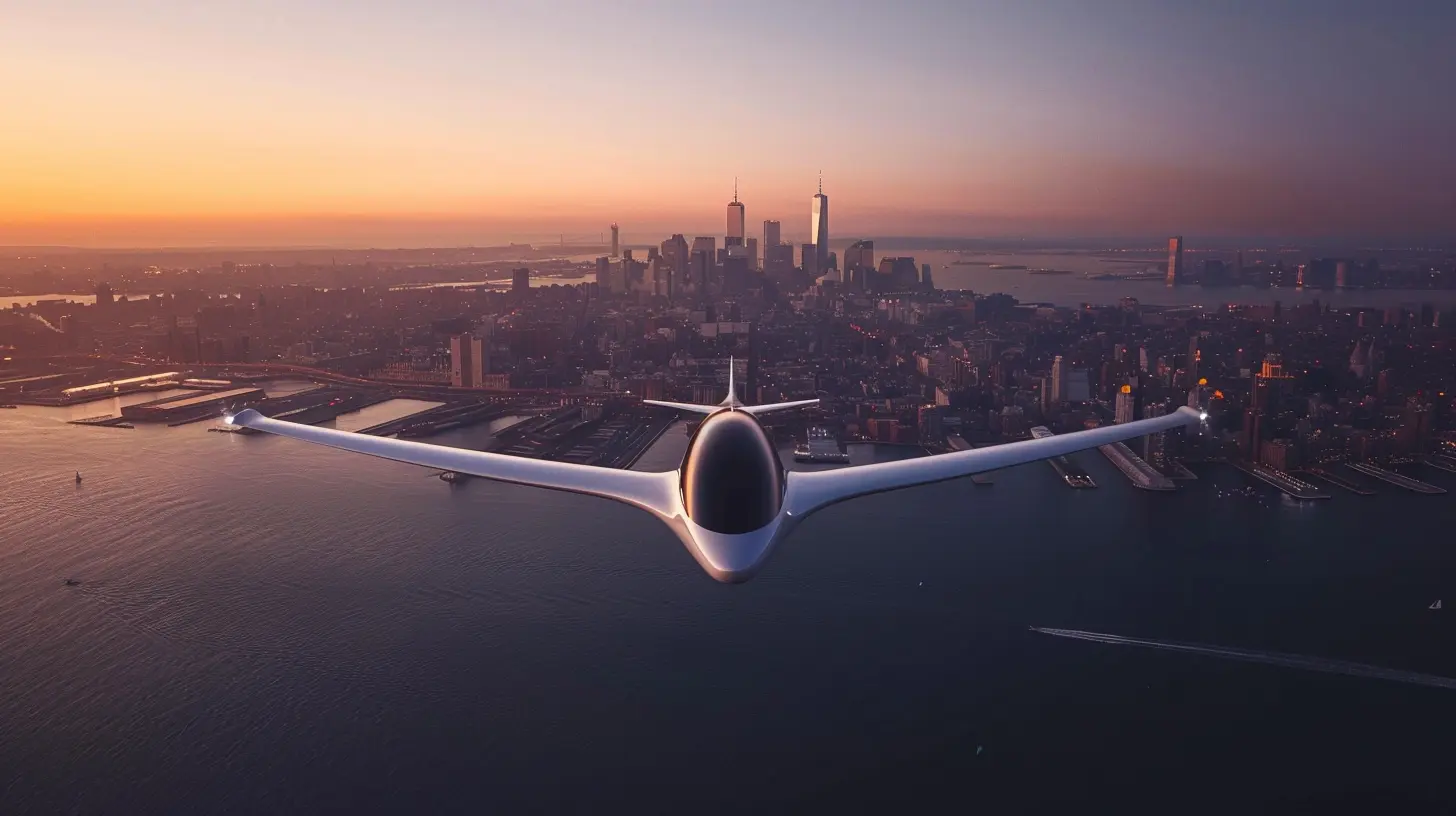Exploring the Possibility of Electric Airplanes: Is It Feasible?
26 November 2025
Electric cars have taken the world by storm, so why not electric airplanes? It seems like a natural progression, right? Cleaner air travel, quieter skies, and a chance to reduce our reliance on fossil fuels. But before we start imagining silent electric planes soaring across the Atlantic, we need to ask ourselves—how realistic is this vision? Is the idea of electric airplanes a pie in the sky, or are we closer to this monumental shift than we think?
In this article, we'll dive into the electrifying world of aviation and see if electric airplanes can actually take off (pun intended). So buckle up as we explore the challenges, potential benefits, and whether or not this dream of future air travel can become a reality.

The Current State of Aviation: Why Change Is Needed
Let's face it—air travel is not exactly eco-friendly. The aviation industry contributes about 2-3% of global carbon emissions. Okay, that may not sound like a lot, but consider this: one long-haul flight can emit more CO2 per passenger than some people produce in an entire year. Yikes!With the increasing pressure to reduce carbon footprints, improve sustainability, and combat climate change, the aviation industry is scrambling to find greener alternatives. Electric airplanes are one of the most promising solutions being explored right now. But before we pop the champagne and celebrate, there are a few hurdles to overcome.

What Exactly Is an Electric Airplane?
Alright, before we get too far ahead of ourselves, let's clarify what we mean by "electric airplane." In its simplest form, an electric airplane uses electric motors instead of traditional jet engines. These motors are powered by batteries, much like electric cars. The idea is that instead of burning tons of jet fuel, these planes would rely on electricity, which could come from renewable sources like solar, wind, or hydropower.Sounds simple enough, doesn’t it? Well, there's a bit more to it than plugging in your plane before takeoff.
Types of Electric Planes
There are a few different types of electric aircraft being developed, and it's important to distinguish between them:1. Fully Electric Planes: These planes rely solely on battery power for propulsion. No fuel, no emissions—just clean energy. But there's a catch: the batteries required to fly a plane are incredibly heavy (more on that later).
2. Hybrid Electric Planes: These are a bit like hybrid cars. They combine electric motors with traditional jet engines, reducing fuel consumption and emissions without going fully electric. This is often seen as a stepping stone to fully electric planes.
3. Hydrogen-Electric Planes: These planes use hydrogen fuel cells to generate electricity, offering another potential path to zero-emission air travel. Hydrogen is a hot topic in the green energy world, but it’s still in the early stages of being adapted for aviation.

The Challenges: Why Aren’t Electric Airplanes a Thing Yet?
If electric cars are already zipping around our streets, why can’t we have electric airplanes buzzing through our skies? That’s a fair question, but the answer is a bit more complicated. The aviation industry faces a unique set of challenges that make electrification harder than it might initially seem.1. Battery Weight and Efficiency
Here’s the biggie: batteries are heavy. Really heavy. When you’re designing a car, this isn’t as much of a problem because the road can support the weight. But when you're designing a plane, every extra kilogram requires more energy to lift off the ground.Currently, jet fuel is far more energy-dense than any battery technology we have. In fact, jet fuel contains about 50 times more energy per kilogram than the best lithium-ion batteries. This means that to power a large airplane, you’d need batteries that weigh several times more than the plane itself—a clear non-starter.
2. Range Limitations
Because of the weight and energy density issues, electric planes have a much shorter range than traditional planes. While small electric aircraft have managed to fly distances of less than 100 miles, this doesn’t exactly cut it for long-haul flights. The dream of hopping on an electric plane from New York to Tokyo is still a long way off.3. Charging Infrastructure
Even if we manage to develop lighter, more efficient batteries, there’s another issue: how do we charge these things? Airports would need to be equipped with high-capacity charging stations, and charging times would need to be fast enough to avoid long delays. Imagine sitting at the gate for hours waiting for your plane to "recharge"—that doesn’t sound fun, does it?4. Cost
Innovation comes with a price tag, and electric airplanes are no exception. The costs involved in developing new aircraft, building charging infrastructure, and retraining pilots and maintenance crews are astronomical. While the long-term savings on fuel might offset some of these costs, the initial investment is a significant barrier.5. Regulations and Certification
Aviation is one of the most heavily regulated industries in the world, and for good reason—safety is paramount when you’re flying tens of thousands of feet above the ground. Any new technology, including electric airplanes, would need to go through rigorous testing and certification processes, which could take years or even decades.
The Benefits: Why We Should Keep Pushing for Electric Airplanes
Despite the challenges, there are some compelling reasons why we shouldn’t give up on electric airplanes just yet.1. Environmental Impact
This is the big one. Electric airplanes could drastically reduce the aviation industry’s carbon footprint. With zero emissions (assuming the electricity is sourced from renewables), electric planes could help combat climate change in a meaningful way. And it’s not just about CO2—electric planes are also much quieter than their fuel-guzzling counterparts, which could lead to less noise pollution around airports.2. Fuel Savings
Jet fuel is expensive, and prices can fluctuate wildly based on geopolitical events and market conditions. By switching to electric power, airlines could save billions of dollars in fuel costs over the long term. Of course, this would depend on electricity costs, but with more renewable energy coming online, there’s potential for significant savings.3. Maintenance Savings
Electric motors have far fewer moving parts than jet engines, which means they require less maintenance. This could lead to cost savings for airlines, not to mention fewer delays due to mechanical issues. Anyone who's had a flight delayed due to engine trouble knows how frustrating that can be.4. Advancements in Technology
Even if we’re not flying in fully electric planes tomorrow, the research and development efforts currently underway are pushing the boundaries of battery technology, electric propulsion systems, and renewable energy. These advancements could have ripple effects across other industries, leading to innovations that benefit all of us.Real-World Progress: Who’s Leading the Charge?
So, where are we now? Are electric airplanes just a pipe dream, or are there actually companies making progress in this area?Several companies and startups are working on electric airplanes, including big names like Airbus, Boeing, and Rolls-Royce. Here are a few notable projects:
- Eviation Alice: This is one of the most well-known electric aircraft currently in development. The Eviation Alice is a fully electric plane designed for short regional flights, with a range of about 440 nautical miles. It’s not ready for commercial use yet, but test flights are already in the works.
- Rolls-Royce ACCEL: Rolls-Royce is working on an electric plane called the ACCEL (Accelerating the Electrification of Flight). It aims to break the speed record for electric aircraft and showcase the potential of electric propulsion.
- Airbus E-Fan X: Airbus was working on a hybrid-electric aircraft project called the E-Fan X, which aimed to use electric propulsion for part of the flight. However, the project was suspended in 2020, largely due to the pandemic, but it showed that major players are taking electric aviation seriously.
The Road Ahead: Are Electric Airplanes Feasible?
So, after all that, what’s the verdict? Is it feasible?Yes and no.
Electric airplanes are definitely feasible for short, regional flights. In fact, we may see small electric planes ferrying passengers on short-haul routes within the next decade. However, when it comes to long-haul flights, the technology simply isn’t there yet. The weight of current batteries and the lack of infrastructure make it unlikely that we’ll see fully electric transatlantic flights any time soon.
But that doesn’t mean we should give up hope. With continued investment in research and development, we could see major breakthroughs in battery technology, electric propulsion, and renewable energy sources that make electric airplanes a viable option for all types of air travel. It’s not going to happen overnight, but the future of electric aviation is certainly worth watching.
Final Thoughts
Electric airplanes represent a bold and exciting vision for the future of air travel. While there are significant challenges to overcome, the potential benefits—both for the environment and the aviation industry—are too great to ignore. We may not be boarding electric planes for long-haul flights just yet, but the journey to greener skies has already begun.So, is it feasible? For short flights, absolutely. For long-haul journeys? We’ll have to wait and see. The skies are the limit—or maybe not.
all images in this post were generated using AI tools
Category:
Electric VehiclesAuthor:

Vincent Hubbard
Discussion
rate this article
2 comments
Lauren White
Great analysis! Electric airplanes hold exciting potential for the future of sustainable aviation. Looking forward to developments!
December 20, 2025 at 4:31 AM

Vincent Hubbard
Thank you! I share your excitement about the potential of electric airplanes and their role in shaping sustainable aviation. Stay tuned for updates!
Madalyn Richardson
Innovative, yet challenging venture!
November 29, 2025 at 3:59 AM

Vincent Hubbard
Thank you! Balancing innovation and feasibility is key to advancing electric aviation.


